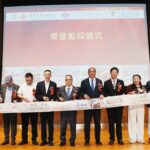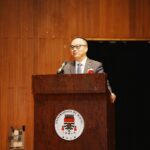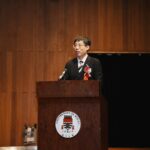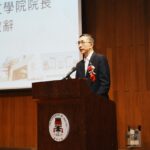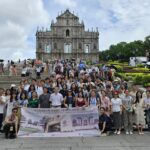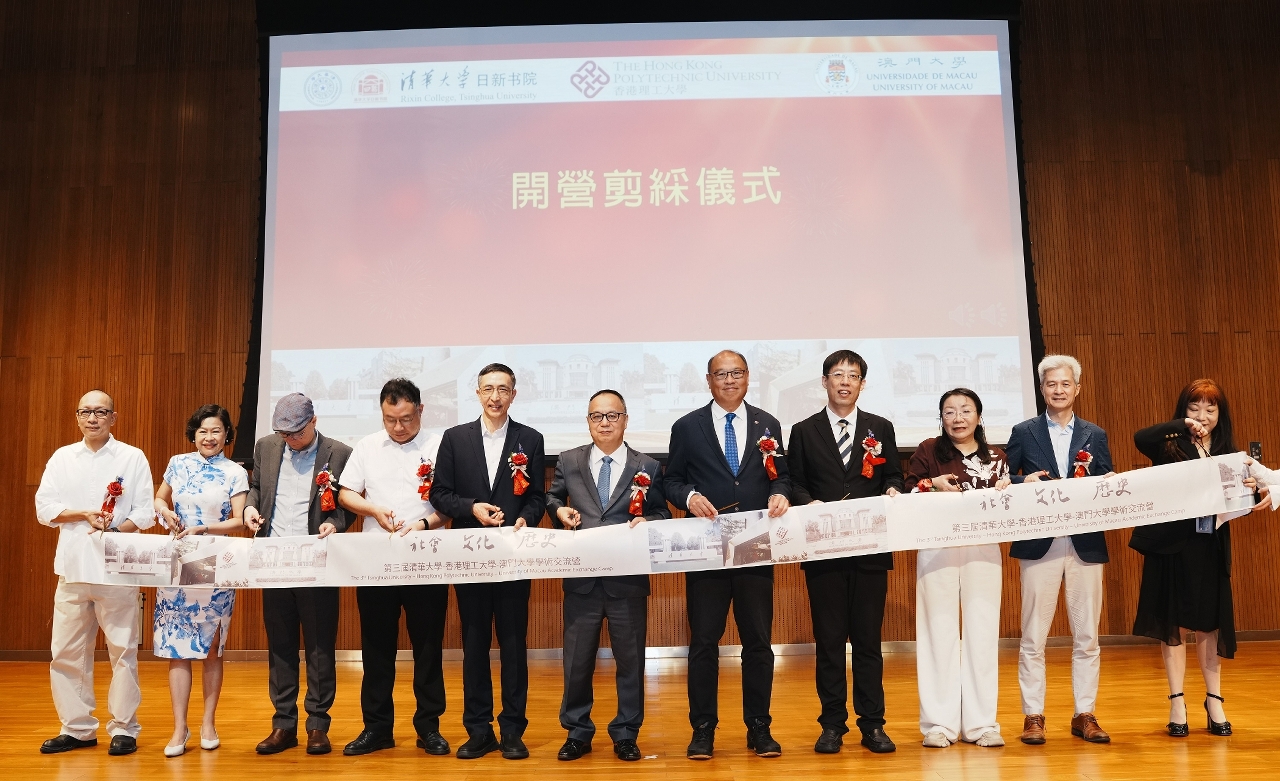 Students and faculty from Beijing, Hong Kong, and Macao join an exchange camp at UM
Students and faculty from Beijing, Hong Kong, and Macao join an exchange camp at UM
The 3rd Tsinghua University-Hong Kong Polytechnic University-University of Macau Academic Exchange Camp took place at the University of Macau (UM). With the theme of ‘China and the World: Society, History, and Culture’, the five-day camp brought together 123 students and faculty members from the three universities to explore the contemporary value of and ways to promote traditional Chinese culture through in-depth academic discussions and cultural activities.
Speaking at the opening ceremony, Yonghua Song, rector of UM, highlighted the three objectives of the exchange camp: to promote collaboration among the three universities and facilitate mutual learning between ancient and modern civilisations; to hold new master’s and doctoral forums for high-calibre students; and to guide young people in integrating into national development by leveraging Macao’s role as a hub where Chinese culture is the mainstream and diverse cultures coexist and by exploring traditional and innovative practices and the concept of ‘a community with a shared future for mankind’. Song encouraged participants to uphold a rigorous and pragmatic attitude, engage in open communication, and actively take part in discussions and field visits in Macao to pave the way for future cooperation.
Gu Tao, dean of Rixin College at Tsinghua University, expressed hope that the exchange camp would promote cultural exchange in East Asia and help build an academic community among Beijing, Hong Kong, and Macao. Li Ping, dean of the Faculty of Humanities at the Hong Kong Polytechnic University (PolyU), expressed hope that participants would take the opportunity to engage in in-depth discussions on the inheritance and innovation of Chinese history and culture in Macao. He also mentioned that PolyU has made ‘Chinese History and Culture’ a compulsory subject and established the Research Centre for Chinese History and Culture. Also present at the opening ceremony were Lam Tai Fai, chairman of the Council of PolyU; Xu Jie, dean of the Faculty of Arts and Humanities (FAH) at UM; and Lei Lai Cheng, assistant dean of FAH.
The exchange camp featured a diverse array of activities. Li Jun, head of the Department of Arts and Design in FAH, gave a lecture on Macao’s cultural history, with commentary by Lin Shaoyang, Distinguished Professor in the Department of History in FAH. In another lecture, Zhang Yan, director of the Centre for Chinese History and Culture at UM, demonstrated ‘cunfa’, a brush technique in Chinese landscape painting, enabling participants to appreciate the charm of ink art. Four parallel academic seminars were held, where students and faculty from Tsinghua University, UM, and PolyU presented over 120 research reports on literature, history, and philosophy. In addition, the participants conducted field visits to historical landmarks in Macao, such as the Ruins of St. Paul’s and Mandarin’s House.
At the closing ceremony, Zhang Yan highlighted the significant achievements of the newly established doctoral forum, where over 30 interdisciplinary reports were presented. The forum had effectively enhanced the research capabilities of young scholars, promoting the creative transformation of traditional Chinese culture. He added that the exchange camp had leveraged Macao’s unique historical and cultural resources to provide immersive learning experiences, and a unique perspective on the interactions between China and the rest of the world. The camp also strengthened cooperation among the three universities and established a robust platform for cultivating talent in the humanities and social sciences with global vision.
The exchange camp was presented by the Centre for Chinese History and Culture in UM FAH. It aimed to provide the three universities with a valuable, replicable experiential learning model through lectures, academic seminars, visits to Portuguese-style architecture, and reflective discussions. The camp also deepened exchanges in the humanities and social sciences among top universities in Beijing, Hong Kong, and Macao, while also contributing to the national cultural development strategy.


